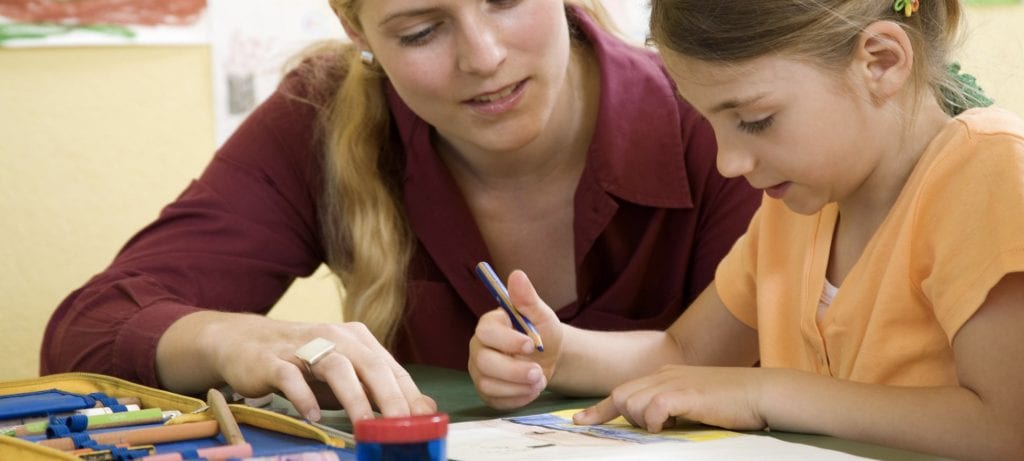
We see signs of burnout in just about every child as summer break approaches. Parents are excited to get a break from the daily (and sometimes stressful) routine of school and homework. Kids are eager to get to sleep in, play more, and have less structure to their day.
In the happy first days of summer vacation, you are relaxed and relieved. Then, you look at the report card. You’re stunned to see lower grades than you saw at the beginning of the year. Reading the notes, you see, “Billy has been reluctant to participate.” Or, “Started strong, but lost his drive as the year came to an end.”
You think back to the hustle and bustle and think, “How did I miss that?” And the red flags that you once overlooked seem brighter and much more alarming now. Then it occurs to you: What if he forgets everything he learned last year and starts next year at a disadvantage? Does he need a tutor?
There are a number of reasons why your child(ren) may struggle in school. Sometimes they are bored because the material and lessons are beneath them. They may be the class clown to make up for a learning issue. And, as you might have guessed, their home life might be less than optimal. In some of these cases, a tutor might not be the answer. However, it’s essential to learn what is holding them back.
If home life is good, they have a strong social presence and seem to like learning; a tutor might be the perfect solution. If there is something dramatic happening or their world has changed, then a tutor might not be a successful solution. Nonetheless, the following may help identify some reasons you hadn’t considered.
If you’re reading this during the pandemic (2020), it’s safe to say you’ve already been spending countless hours at home with your children. You might even be in the middle of school-related activities, however, given the title of this article that is unlikely. This article is about pre-summer signs that you may need to add some schooling to your COVID, stay-at-home life.
1. Their grades were less than stellar on the last report card. If they surprised you, or you know they can do better, a tutor can get them back up to speed.
2. Teachers have complained that he/she isn’t behaving in class. This complaint could be because your child doesn’t understand the concepts, or that they’re beyond the concepts.
3. Motivation is out the window. At first, you chalked it up to end-of-the-year burnout. Looking back, he/she was uninterested in everything school-related.
4. Tutoring has already been recommended. The teacher suggested this at the last meeting, but you thought that you could get it under control. Sometimes extra attention at home can make the difference.
5. His/Her confidence is showing signs of decline. Maybe it’s as apparent as your child parroting, “I’m stupid” after a small mistake. Or it could be less obvious. Maybe he or she is saying, “it’s too hard” or “I can’t” more often than they did prior.
6. Homework sessions were marathon events where no one came out the winner. Whining. Crying. Tantrums. Not to mention how he/she was behaving. In the end, the work was poorly done and incorrect. And both of you are exhausted.
7. He/She doesn’t want to go to school anymore. This might be another sign missed because you were tired of school, too. But if your child was making excuses, complaining he/she was sick, or otherwise acting out, it could be because they were starting to fall behind. They may also be bored with the lessons.
8. Your child is just not focused in class. He/She has been caught doing other non-school related tasks like reading comic books, playing games on they’re phone. This act could be that they’re bored or beyond the lessons.
9. He/She has test anxiety. Headaches, stomach pain, nail-biting, over-emotional: these are all signs of anxiety. Your child may feel unprepared and knows he or she won’t perform as well as they would like. Sometimes tutors don’t help this, so you might also try other techniques.
10. “I need help.” Sometimes, even when we hear these words, we dismiss them. Not because we don’t want to assist our child, but more because we think that if he/she would focus, or apply themselves more, they’d be okay. The truth is that he/she may have identified that the concept is over their head.
There are a lot of tutors out there to help you and your child over the summer. Interview as many as possible and pick the tutor with the right experience, the best manner of communicating, and enthusiasm for helping your child. You’ll look back when school starts and be confident that it was one of the best decisions you’ve made.
When you are having trouble in your marriage at home, it can potentially begin to affect your child’s performance in school negatively. If you are considering a divorce, contact the divorce attorneys at Modern Family Law today for a free consultation. It would also be helpful to seek some consoling if there are family changes ahead. It’s important they learn receiving help isn’t a sign of weakness.

Visitation
10 Helpful Tips for Co-Parenting During the…The holidays are supposed to be the most beautiful time of the year. However, holidays can be significantly stressful for families going through a…

Paternity
Paternity In Georgia: Establishing Legal FatherhoodWhen a child is born in the state of Georgia, the question of who is a “legal father,” not just a biological one, is…

Relocation
Relocation “Move-Away” Cases in GeorgiaWhen a parent wants to move to a new city, a new state, or even out of the country with their child, Georgia law…